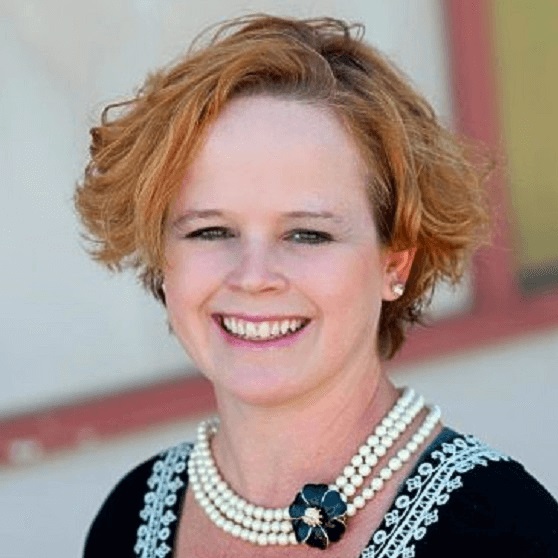April is Autism Awareness Month. This is a great time to build our understanding and to celebrate these individuals, their loved ones, and their educational and behavioral support teams. Not one person with Autism Spectrum Disorders (ASD) is the same. With an estimated prevalence of 1-2% of the U.S. and worldwide population, ASD is not uncommon.
The CDC estimates that 1 in 44 students have ASD and it is 4 times more common in boys than in girls, but impacts all demographics and socioeconomic groups equally. Yet, this neuro-developmental disability tells us little about what to expect, because each individual is unique, and the range of the disability is diverse. Because of this, the needs of people with ASD vary immensely and it is important to consider each person’s challenges and strengths when designing an educational program or behavioral intervention.
The traits of ASD include challenges with language and communication, social emotional skills, sensory processing, and motor skills. Executive function skills such as paying attention, memorization, organization, planning, cognitive flexibility, decision-making, and emotion regulation, are also common challenges for individuals with ASD.
Challenging Behaviors
Some individuals with ASD exhibit behavioral challenges such as aggression, self-injury, elopement, non-compliance, or tantrums. These students often need a behavior plan to identify why the behavior is happening (i.e. the function of the behavior) and to identify what is happening in the environment to affect that behavior.
These variables help drive an intervention plan to decrease the behavior while simultaneously increasing pro-social behaviors to replace the disruptive ones. RethinkEd’s behavioral intervention system can help guide educators through this process quickly and easily and includes templates, examples, and step-by-step guidance for creating a behavior plan and tracking data in an easy-to-use online system.
Academic Support
As ASD is a diverse spectrum, academic needs range from students needing little academic support to needing some support, to needing extensive individualized support. Students with ASD may have a range of needs that can be supported through a multi-tiered framework. RethinkEd’s platform provides curriculum, data analytics, intervention tools, and resources for all levels of support for students with ASD. A student needing minimal supports can benefit from the Social Emotional Learning (SEL) curriculum or from the Vizzle academic courses when the student needs to catch up in a particular subject, such as math or social studies.
A student needing more supports can also benefit from these things but may need more Vizzle courses in more subjects and may need to complete the courses at an adjusted level that is more developmentally appropriate for their needs. Students needing more intensive support can also benefit from Vizzle courses at a level adjusted for them to have access to the content while adjusting to their cognitive and language abilities.
In addition, RethinkEd offers a comprehensive academic curriculum for special education students and many of these lessons and activities are specifically designed to meet the needs of students with ASD. While students with ASD present with varying academic needs, RethinkEd provides tools to meet this diverse range of needs.
Social and Emotional Development
All students can benefit from Social Emotional Learning (SEL) as skills such as empathy, self-advocacy, resilience, conflict resolution, goal setting, and relationships are essential life skills for everyone. These skills are critical for success in school and for preparing for adult life. Social understanding and social interactions are one of the key symptoms of ASD and so SEL may be even more important for these students.
RethinkEd’s SEL curriculum provides 30 different lessons and activities for students functioning with the least amount of supports (i.e. General Education) to those needing some accommodations, to those in special education needing intense accommodated or modified lessons and activities catered to their cognitive and developmental abilities. Students with stronger SEL skills are more able to access the academic and social content that they need to succeed.
Mental Health
While ASD is not a mental health disorder, individuals with ASD are at an increased risk of having a mental health disorder (i.e. a comorbid or co-occurring disorder) with about 70% of individuals with ASD having at least one mental health disorder and 41-50% having 2 or more mental health conditions. Mental health issues can exaggerate the symptoms of ASD by worsening behavior, social interactions, communication, and sensory processing. Mood disorders and anxiety are the most common mental health disorders and include obsessive-compulsive disorders, depression, bipolar, anxiety, and ADHD. Students exhibiting symptoms of these disorders should be seen by a professional mental health expert.
To help students and educators better understand mental health issues, RethinkEd provides a suite of lessons and activities on mental health topics. Students with ASD may benefit from having language to describe symptoms and to learn strategies for seeking help.
Adulthood
As students reach high school, educators need to focus on preparing individuals with ASD for adult life. While some students may be college bound and others may be seeking employment and others may be going to live in an adult home, all students must prepare for adulthood. In addition to providing academic supports, schools must teach SEL skills such as self-advocacy and responsible decision-making, as well as teaching life skills such as chores, self-care, and transportation.
With more than 5.4 million adults with ASD in the U.S. (2.2%), it is important to provide skills for these individuals to be productive and happy citizens. Only about 19% of these adults are working and 32% of these individuals are working part-time. Building adult skills prior to graduation may boost these numbers and provide students with a brighter future.
Resources
Autism (U.S. Department of Labor)
What is executive function? (Understood)
Autism (National Alliance of Mental Illness)
Autism and mental health facts (Rogers Behavioral Health)
Data & Statistics on Autism Spectrum Disorder (CDC)




